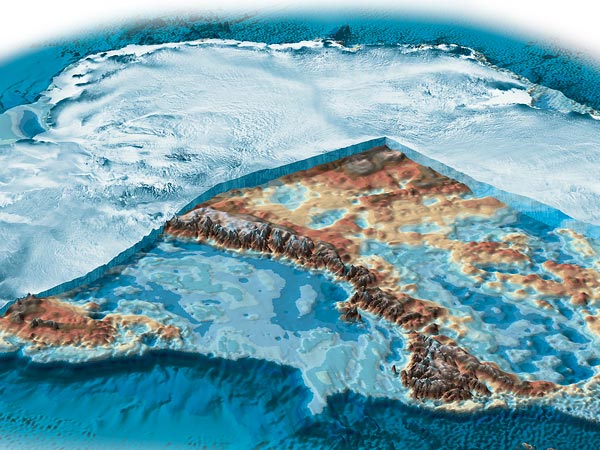
Image: A cutaway view of Antarctica shows its southern ice sheet. (Map from National Geographic)
news.nationalgeographic.com - Rob Kunzig - August 31st, 2012
Swamp gas trapped under miles of Antarctic ice, a chemical souvenir of that continent's warmer days, may someday escape to warm the planet again, an international team of researchers report in Nature this week.
The researchers suggest that microbes isolated from the rest of the world since the ice closed over them, some 35 million years ago, have kept busy digesting organic matter and making methane—a much more effective greenhouse gas than carbon dioxide.
If global warming causes the ice sheets to retreat in the coming decades or centuries, the researchers warn, some of the methane could belch into the atmosphere, amplifying the warming.
(VIEW COMPLETE ARTICLE)
Recent Comments